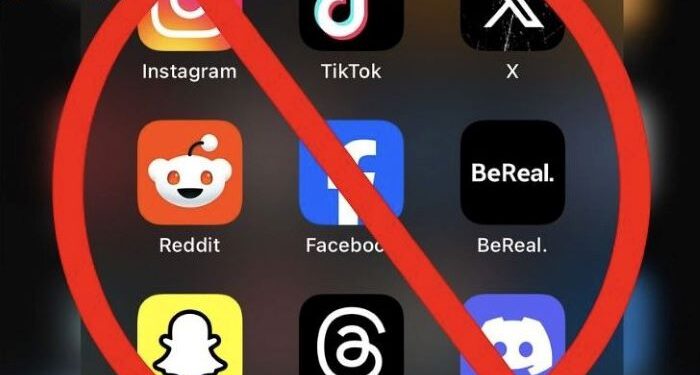The Australian parliament on November 29 passed the Online Safety Amendment (Social Media Minimum Age) Bill 2024 (the Bill) that makes it obligatory on certain social media platforms such as Meta, Snapchat, TikTok, Reddit and X to take reasonable steps to prevent children under 16 years of age from having an account.
Introducing a minimum age for social media gained popular support over the ensuing months. The Federal Government expressed support for a ban on under-16s accessing social media in June, the Opposition pledged to implement a ban within 100 days of taking office, state premiers made similar commitments, and campaigns were launched by a range of media outlets. The Government of South Australia appointed former Chief Justice of the High Court Robert French AC to undertake an Independent Legal examination into banning children’s access to social media. This report was published in September 2024.
On 8 November 2024, the Federal Government announced its intention to ‘legislate 16 as the minimum age for access to social media, following endorsement by National Cabinet’.
There is no current legislated minimum age for social media use in Australia. Children are generally unable to sign up for social media accounts under the age of 13. However, this restriction is imposed by global platforms operating in line with the United States’ Children’s Online Privacy Protection Rule (COPPA), rather than enforced by Australian regulation. It can also be easily circumvented.
In November 2023, Shadow Minister David Coleman, introduced a private member’s bill to compel the government to conduct a trial of age-verification technology, in line with a recommendation of the Roadmap for age verification – released by the eSafety Commission in the context of children accessing online pornography. Mr Coleman’s Bill specified that the trial include application to social media platforms.
Key points
- The Online Safety Amendment (Social Media Minimum Age) Bill 2024 (the Bill) introduces an obligation on certain social media platforms to take reasonable steps to prevent children under 16 years of age from having an account.
- It is the responsibility of the eSafety Commissioner to write guidelines on the ‘reasonable steps’ to be taken by age-restricted social media platforms.
- Details on what may be included in these guidelines, such as what age estimation or age verification technology may be used, is not included in the Bill.
- The obligation for certain social media platforms to restrict under-age account holders will not commence for at least 12 months, with the date to be set by the Minister.
- Research, including by the eSafety Commissioner, suggests that there are both benefits and risks to social media use by children, and that these benefits and risks are individualised.
Meanwhile people have reacted with a mixture of anger and relief to a social media ban on children under 16 that the government says is world-leading. Critics are worried that the regime would require customers to hand over personal information to social media companies to confirm their age.
The government will take up to a year to run trials and finalise the regulations to support the law. Tech tycoons, such as X owner Elon Musk, have warned that it will not work.
It is the worry of parents worldwide, hugely popular with voters and Tech companies have criticised the plan with Meta, the owner of Facebook and Instagram, calling the law “rushed” and difficult to enforce. Snapchat has warned of “unintended consequences”.
The fiercest opposition has come from X, whose billionaire owner Elon Musk called the law “a backdoor way to control access to the internet by all Australians”.
The Australian ban, which will not take effect for at least 12 months, could see the social media giants fined up to $50 million for not taking reasonable measures to monitor the age of users.
According to commentators, Australia’s crackdown could now potentially lead to a global domino effect of teenage social media bans driven by politicians eager to please a key demographic.














